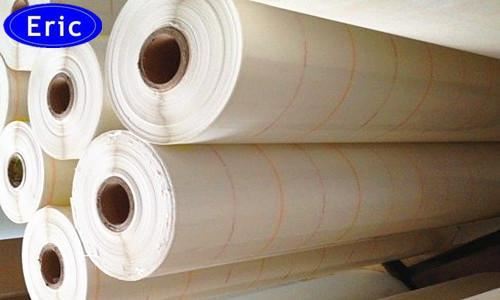Performance characteristics of weft free belts
Xuchang Eric Insulation Products to Share with You: Performance Characteristics of Weft Free Ribbon
1. Usage: The weft free belt has excellent performance, and its use on motors can improve performance, make the motor safe and reliable, and simplify the binding process. Used on transformers, it can improve transformer performance, reduce silicon steel sheet punching and shearing process, and reduce vibration and noise of transformers. Therefore, weft free belts are widely used in departments such as national defense, chemical industry, electrical appliances, and machinery. For example, thin-walled shells, cylinders, high-pressure vessels, etc. wrapped in high-temperature and high-pressure materials. It can also be used to roll several low-voltage chemical pipeline motors, electrical appliances, and industry to replace anti magnetic alloy steel wire binding armatures. It can also be used for capacitors, electronic products, large, medium and small DC motors, generators, traction motors, and welding machines. The hollow screw of the transformer, the fastening iron core, and the insulation parts of the transformer and reactor.
2. Performance: Non woven and thin woven tapes are semi dry pre impregnated tapes made from alkali free glass fiber impregnated thermosetting resin processed with silane surface treatment. The quality of products wrapped with weftless tape is stable and reliable, and the resin content is not affected by the winding tension. The tension can be accurately controlled in different winding layers, resulting in the best strength and stiffness structure of the product. It is easy to use and can be used for high-speed winding, improving productivity. The tensile strength of the products made can be compared to alloy steel, and the specific gravity is only 1/5 of that of alloy steel.
3. Usage: There is no difference in the usage of these three types of straps. In summer, remove them from the refrigerator and place them at room temperature for a few hours. Wait for the straps to soften before use. If conditions permit in winter, it can be heated in an oven and dried at a temperature of 60-80 ℃ for half an hour to one hour. When binding, the binding speed should be controlled below 50 revolutions per minute, and the binding force should be 20-50kg/cm2. After the specified thickness is wrapped, it should be placed together with the object in an oven for curing. The temperature should be kept at 90 degrees Celsius for one hour and 130 degrees Celsius for ten hours; Level F is insulated for 2 hours at 130 degrees Celsius and 10 hours at 150 degrees Celsius. The B-class, F-class, and H-class non weft contraction belts are stored with a load of less than 30 degrees Celsius and a storage period of generally three months. Products that exceed the storage capacity can still be used after passing the test. During storage and transportation, it is strictly prohibited to collide, prevent moisture, prevent direct sunlight, and maintain cleanliness and dryness.
4. Transportation and storage: Each plate of non woven tape is sealed in a plastic bag and packed in a wooden box (cardboard box). During transportation, strict attention should be paid to avoiding collision, compression, heat, moisture, and sunlight exposure. Polyester B products should be stored in a dry, clean, and well ventilated warehouse below 25 ℃. The storage period is three months from the production date. Epoxy B should be stored in a dry cold room at zero degrees Celsius, with a validity period of one month from the production date. It can still be used if it has exceeded the storage period and passed the product standard inspection.

